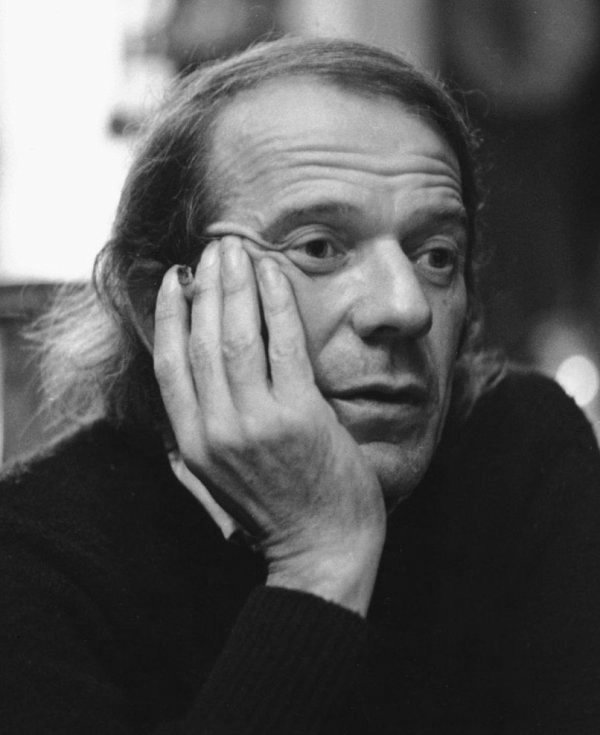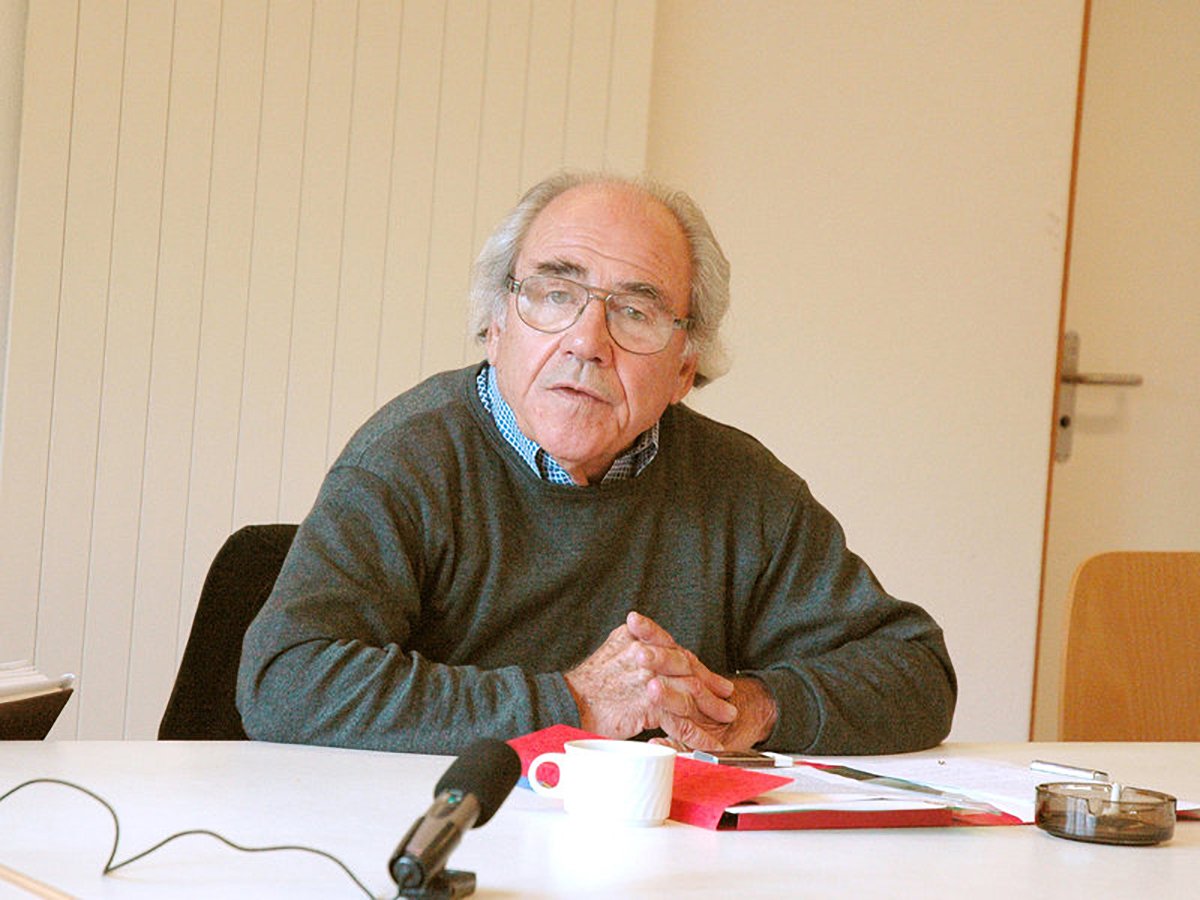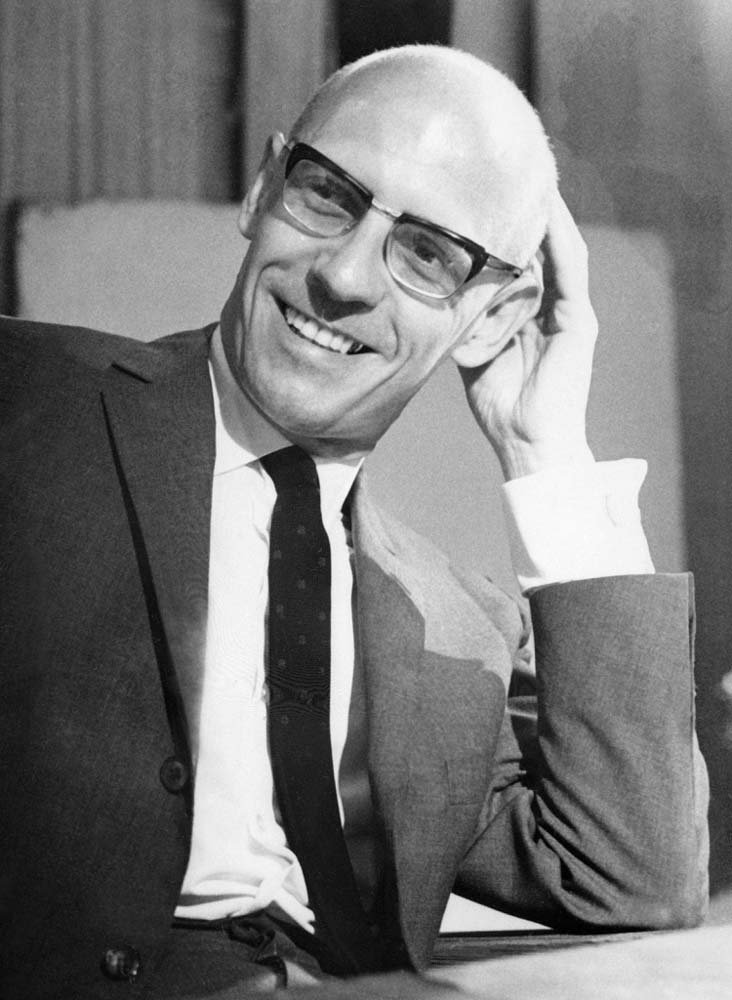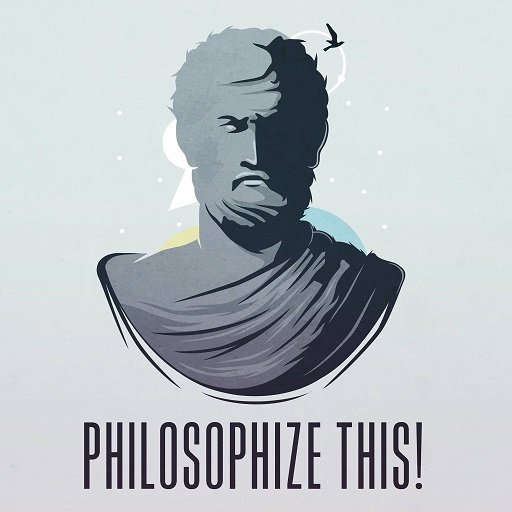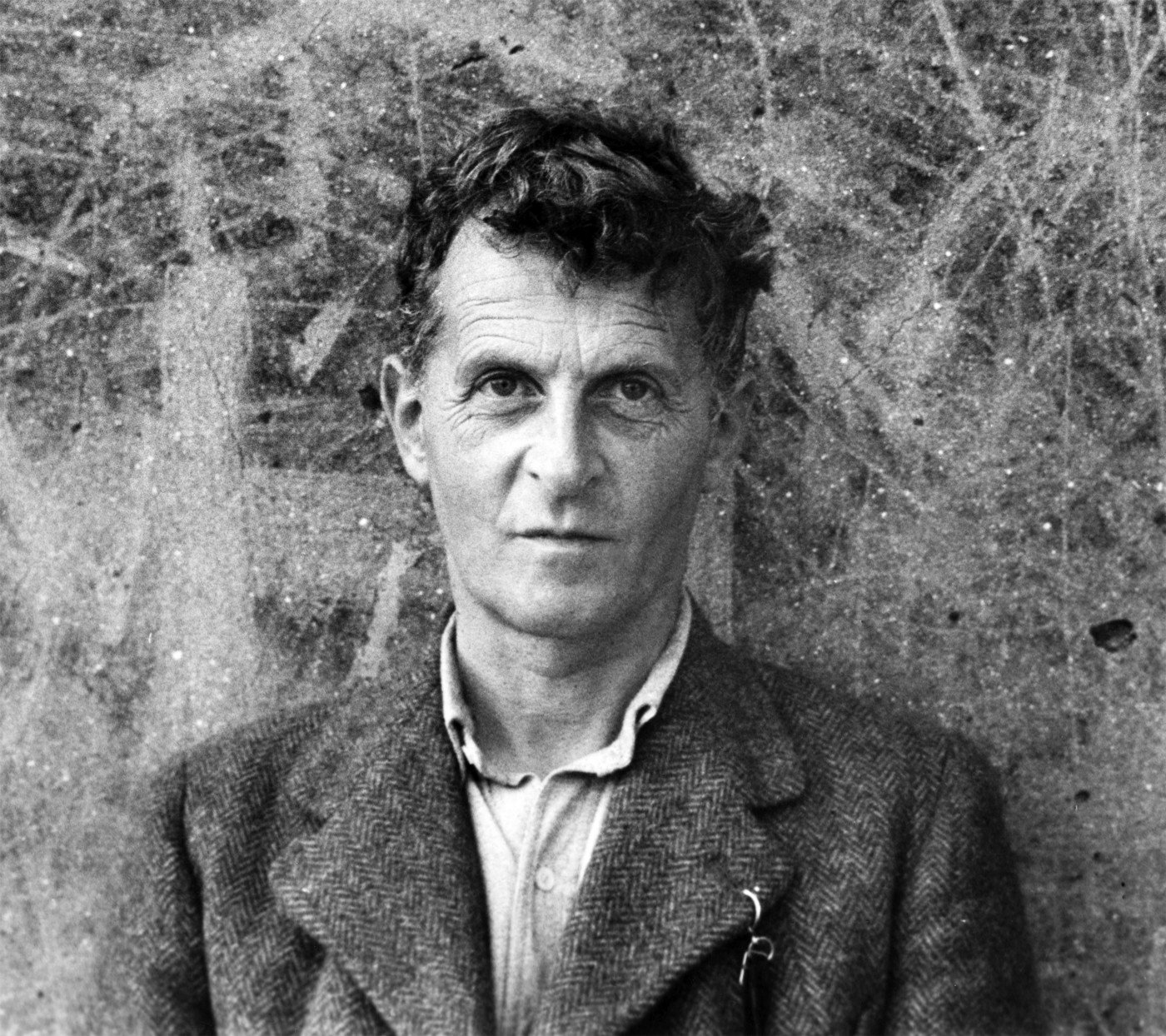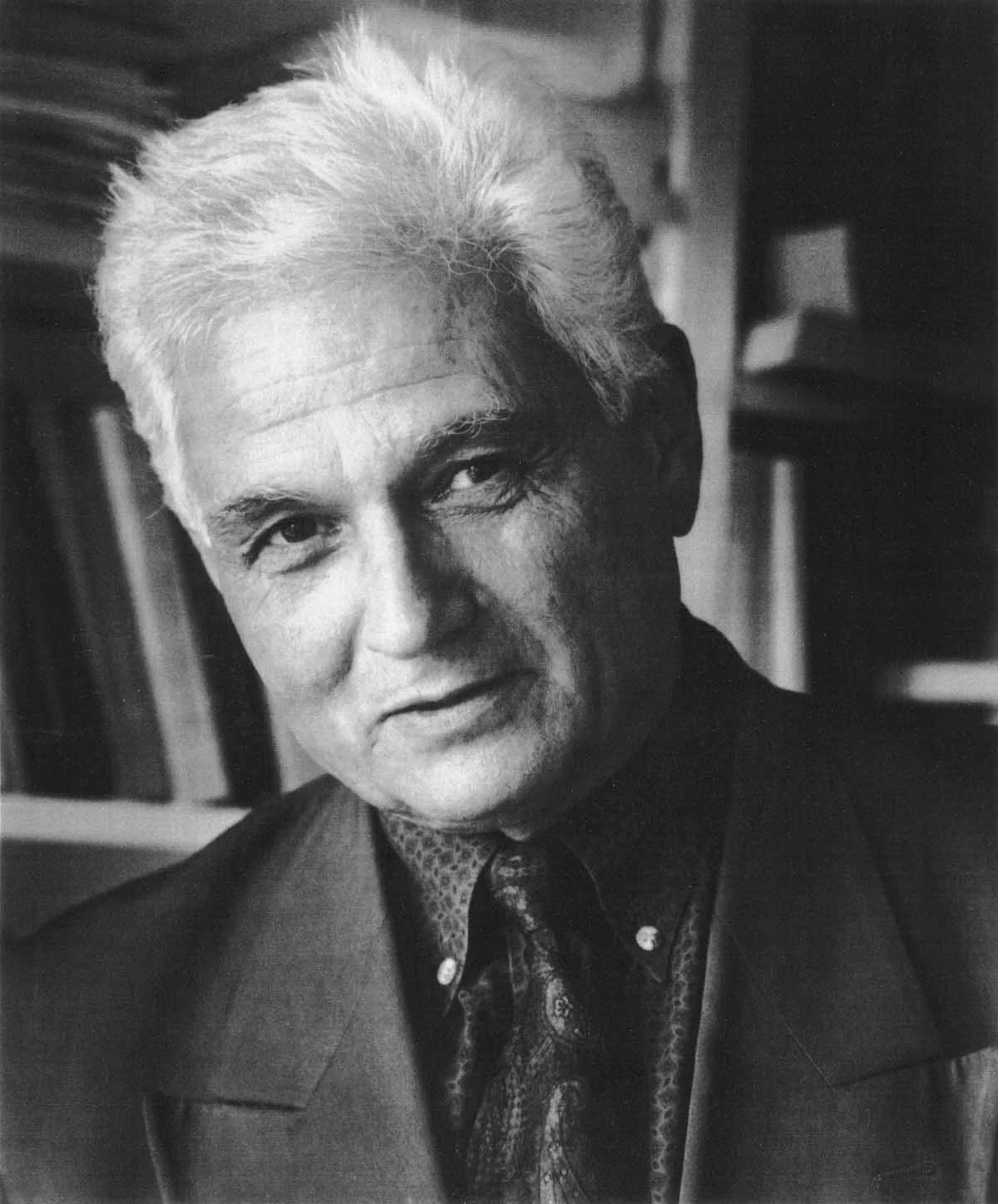Episode #126 - Gilles Deleuze Pt. 2 - Immanence
Gilles Deleuze Pt. 2 - Immanence
In this second episode on Gilles Deleuze, the podcast deepens its exploration of his reimagining of philosophy—not as a quest to discover truth, but as a creative act rooted in immanence rather than transcendence. Building on the previous episode’s premise that philosophy is the art of concept creation, the discussion contrasts traditional ontologies grounded in identity and dualism with Deleuze’s radical move toward an ontology of difference. Drawing on Baruch Spinoza and Henri Bergson, Deleuze challenges the long-standing philosophical reliance on stable concepts tied to transcendent structures, arguing instead for a model where substance expresses itself through time rather than space, actualizing the virtual in endlessly diverse ways. He critiques how past systems installed hierarchies that privileged unity, non-physicality, and the ideal, ultimately constraining how life could be imagined. In contrast, Deleuze’s ontology of immanence proposes that all of being is univocal—one substance without hierarchy—allowing for a more open, dynamic view of existence. Rather than reducing reality to what is knowable, Deleuze encourages us to “palpate the unknowable,” feeling our way through chaos with creative, concept-driven thought that widens the horizon of what life can be.
Further Reading:
Gilles Deleuze: An Introduction – Todd May (2005)
Difference and Givenness: Deleuze's Transcendental Empiricism and the Ontology of Immanence – Levi R. Bryant (2008)
Philosophy After Deleuze – Joe Hughes (2012)
See the full transcript here.
Thank you to everyone who makes this podcast a possibility in the future.
I could never do this without your support! :)
Episode #125 - Gilles Deleuze Pt. 1 - What is Philosophy?
Gilles Deleuze Pt. 1 - What is Philosophy?
In this opening episode on Gilles Deleuze, the podcast traces the evolution of Western philosophy through the lens of postmodern critique, especially in how philosophy has historically aimed to define "truth" or "being" through increasingly refined systems. While structuralists and post-structuralists like Foucault and Derrida revealed the cultural and linguistic contingencies behind such efforts, Deleuze offers an alternative path—rather than deconstructing philosophy as a failed quest for objective truth, he reimagines it as a creative practice. For Deleuze, philosophy is not about discovering reality but inventing concepts to make sense of its chaos. Alongside Félix Guattari, he proposes that philosophy, like art and science, is one of the three central creative acts of human thought. In What is Philosophy?, they describe the process of philosophical creation as involving concepts, a “plane of immanence” (the groundwork that allows these concepts to emerge), and the “conceptual personae” who embody and express them. Rejecting transcendent ideals, Deleuze roots meaning in immanence and offers a model for thinking that is flexible, generative, and deeply tied to the question: How might one live?
Further Reading:
What Is Philosophy? by Gilles Deleuze and Félix Guattari (1994)
Gilles Deleuze: An Introduction by Todd May (2005)
Gilles Deleuze: Key Concepts edited by Charles J. Stivale (2005)
See the full transcript here.
Thank you to everyone who makes this podcast a possibility in the future.
I could never do this without your support! :)
Episode #124 - Simulacra and Simulation
Episode #124 - Simulacra and Simulation
In this episode, the show explores Jean Baudrillard’s Simulacra and Simulation, expanding on earlier discussions of post-structuralist thinkers like Michel Foucault. Foucault showed how categories such as “sane” or “criminal” aren’t timeless truths but historical constructs shaped by shifting systems of power. Building on this, Baudrillard argues that in our media-saturated, consumer-driven world, we no longer engage with reality itself—we engage with simulations: layers of signs and images that imitate reality while gradually replacing it. Using The Matrix as a metaphor, the episode illustrates how modern identity is no longer anchored by grand narratives but assembled through consumer choices, with people expressing who they are through the products they buy and the symbols they display. These signs, crafted and reinforced by media, become the language of identity in a world where meaning is fluid and unstable. The episode also explores how this simulation affects our understanding of global events, pointing to Baudrillard’s claim that “The Gulf War Did Not Take Place”—not to deny the war’s existence, but to highlight how, for most people, it was experienced entirely through televised imagery and curated sound bites. In the end, the episode paints a picture of a fragmented society, where individuals—isolated and immersed in their own media bubbles—move past one another like cars on a freeway, surrounded by representations that feel real, but never quite are.
Further Reading:
Poststructuralism: A Very Short Introduction by Catherine Belsey (2002)
Simulacra and Simulation by Jean Baudrillard (1994)
The Mode of Information: Poststructuralism and Social Contexts by Mark Poster (1990)
See the full transcript here.
Thank you to everyone who makes this podcast a possibility in the future.
I could never do this without your support! :)
Episode #123 - Michel Foucault Pt. 3 - Power
Episode #123 - Michel Foucault Pt. 3 - Power
This episode continues the series on Michel Foucault by exploring how he challenged the idea that truth is universal and progress is rational. Building on earlier discussions of Kant, science, and criminal justice, it focuses on Madness and Civilization, where Foucault argues that modern approaches to mental illness are not more humane, but part of a broader system that objectifies and controls people under the guise of care. His method evolves from “archaeology,” which uncovers forgotten ways of thinking, to “genealogy,” which traces how ideas develop through power. Foucault reveals that modern power is no longer top-down and repressive, but diffuse and productive, shaping norms, behaviors, and identities through what he calls biopower. Rather than silencing us, power invites confession, self-surveillance, and conformity to scientific discourse. The episode closes by emphasizing that Foucault’s aim isn’t to replace dominant narratives, but to question them—revealing how they shape our lives and asking what might lie beyond them.
Further Reading:
Foucault: A Very Short Introduction by Gary Gutting (2005)
The Philosophy of Foucault by Todd May (2006)
Biopower: Foucault and Beyond edited by Vernon W. Cisney and Nicolae Morar (2015)
See the full transcript here.
Thank you to everyone who makes this podcast a possibility in the future.
I could never do this without your support! :)
Episode #122 - Michel Foucault Pt. 2 - The Order of Things
Episode #122 - Michel Foucault Pt. 2 - The Order of Things
This episode continues the exploration of Michel Foucault by examining how scientific knowledge is shaped not just by discovery, but by deep, often invisible cultural assumptions. Living in a time of great faith in science, Foucault challenged the idea that progress in fields like physics or biology leads to objective truth. Instead, he focused on epistemes—unconscious frameworks that shape what societies consider knowable or valid. Through works like The Order of Things and The Birth of the Clinic, he showed how institutions such as hospitals and prisons are influenced by shifting language and norms, not just function. Foucault distinguishes between repressive power (force) and normalizing power (internalized expectations), arguing that modern societies maintain control by shaping how people see themselves. Ultimately, he urges us to question the dominant narratives we take for granted, revealing them as historically contingent systems grounded in power.
Further Reading:
The Order of Things: An Archaeology of the Human Sciences by Michel Foucault (1970)
The History of Sexuality, Volume 1: An Introduction by Michel Foucault (1978)
Seeing Like a State: How Certain Schemes to Improve the Human Condition Have Failed by James C. Scott (1998)
See the full transcript here.
Thank you to everyone who makes this podcast a possibility in the future.
I could never do this without your support! :)
Episode #121 - Michel Foucault Pt. 1
Episode #121 - Michel Foucault Pt. 1
This episode introduces Michel Foucault through his book Discipline and Punish, exploring how societies shifted from public executions to controlling people through discipline and routine. Foucault argues that modern punishment isn't about justice—it's about maintaining power. He explains how systems like prisons, schools, and workplaces use surveillance, rules, and constant evaluation to shape behavior. Inspired by the panopticon—a design where prisoners never know when they’re being watched—Foucault shows how this logic now runs through all of modern life. We internalize these systems, watching and judging ourselves to fit into what society tells us is “normal.” Power, he says, doesn’t just come from governments or wealth, but from the knowledge that defines who we are and how we live.
The Society of the Spectacle – Guy Debord (1967)
The History of Sexuality, Volume 1: An Introduction – Michel Foucault (1976)
Punishment and Social Structure – Georg Rusche & Otto Kirchheimer (1939)
See the full transcript here.
Thank you to everyone who makes this podcast a possibility in the future.
I could never do this without your support! :)
Episode #120 - Logical Positivism
Episode #120 - Logical Positivism
The episode traces the rise and fall of logical positivism, a 20th-century philosophical movement that sought to ground meaningful statements in either logical reasoning or empirical observation. Reacting against centuries of unverifiable metaphysical speculation, logical positivists emphasized the "verification principle"—the idea that if a claim cannot be verified through logic or sensory experience, it is meaningless. Heavily influenced by early Wittgenstein and developments in science, they positioned philosophy as a tool for clarifying scientific language rather than exploring ethics, aesthetics, or metaphysics. However, internal critiques—especially from thinkers like Karl Popper and W.V.O. Quine—revealed inconsistencies in their core assumptions, such as the analytic/synthetic divide and the viability of pure sense-data. Thomas Kuhn’s The Structure of Scientific Revolutions further challenged their worldview, showing that scientific progress is shaped by sociocultural forces and paradigm shifts, not by objective, linear reasoning. These critiques ultimately undermined the foundations of logical positivism and paved the way for later philosophical movements, including postmodernism.
Further Reading:
Language, Truth and Logic – A.J. Ayer (1936)
Sense and Sensibilia – J.L. Austin (1962)
Theory and Reality: An Introduction to the Philosophy of Science – Peter Godfrey-Smith (2003)
See the full transcript here.
Thank you to everyone who makes this podcast a possibility in the future.
I could never do this without your support! :)
Episode #119 - Derrida and Words
Episode #119 - Derrida and Words
This episode examines how Jacques Derrida and post-structuralist thinkers disrupt the Enlightenment-era belief that precise language guarantees shared understanding. They argue that meaning is never fixed; it emerges through difference and context. A word’s synchronic meaning—its place within a system of signs at a given moment—is only part of the picture. Its diachronic meaning—its historical evolution—also shapes how it functions.
Derrida introduces the idea of deferral, claiming that meaning is always postponed, never fully present or self-contained. This challenges the traditional search for stable truths and leads to his famous claim that “there is nothing outside the text”—all understanding is mediated through language. The episode connects this insight to broader philosophical efforts, like those of phenomenologists and logical positivists, who sought access to raw experience. Derrida’s critique suggests that such efforts may be fundamentally limited by the very language they rely on.
Further Reading:
Of Grammatology by Jacques Derrida (1967)
On Deconstruction: Theory and Criticism after Structuralism by Jonathan Culler (1982)
The Reception of Derrida: Translation and Transformation by Michael Thomas (2006)
See the full transcript here.
Thank you to everyone who makes this podcast a possibility in the future.
I could never do this without your support! :)
Episode 118 - A Basic Look At Post-Modernism
Episode 118 - A Basic Look At Post-Modernism
This episode looks at the moment when structuralism, once a powerful way of understanding culture and thought, starts to face serious challenges—both from critics and from within its own framework. As thinkers began applying structuralist methods to structuralism itself, they exposed its limitations and contradictions. This led to the rise of post-structuralism and eventually postmodernism, a movement that questions the Enlightenment’s core ideas: objective truth, fixed identity, and universal theories. Postmodernists argue that what we call “truth” is always shaped by culture and history, and that attempts to create grand, unified explanations often do more harm than good. The episode explains how postmodern thinkers push for fragmentation over unity—breaking down rigid categories and centralized worldviews in favor of multiple, shifting perspectives. By tracing these ideas, the episode sets up a deeper conversation about how postmodernism rethinks meaning, truth, and identity in the modern world.
Further Reading:
An Introductory Guide to Post-Structuralism and Postmodernism by Madan Sarup (1993)
Postmodernism, or, the Cultural Logic of Late Capitalism by Fredric Jameson (1991)
The Postmodern Condition: A Report on Knowledge by Jean-François Lyotard (1984)
See the full transcript here.
Thank you to everyone who makes this podcast a possibility in the future.
I could never do this without your support! :)
Episode #117 - Structuralism and Mythology Pt. 2
Episode #117 - Structuralism and Mythology Pt. 2
This episode expands on structuralist thought by showing how culture, like language, is built on deep structures that shape how we understand the world. Drawing from Barthes and Saussure, it explains how media and myth present cultural values as natural truths. Whether through curated social media posts, celebrity news, or political messaging, we absorb narrow worldviews without realizing it. These myths don't just tell stories—they smuggle in entire systems of values that feel like facts. Claude Lévi-Strauss adds that all cultures, even those labeled “primitive,” rely on binary oppositions—like clean/dirty or sane/insane—to make sense of reality. These oppositions help society function but often oversimplify complex truths. By recognizing these patterns, we begin to see that our sense of what’s normal or true isn’t universal—it’s shaped by hidden structures built into the culture we live in.
Further Reading:
Structuralism and Semiotics by Terence Hawkes (2003)
Structuralist Poetics: Structuralism, Linguistics and the Study of Literature by Jonathan Culler (2002)
The Pursuit of Signs: Semiotics, Literature, Deconstruction by Jonathan Culler (2002)
See the full transcript here.
Thank you to everyone who makes this podcast a possibility in the future.
I could never do this without your support! :)
Episode #116 - Structuralism and Mythology Pt. 1
Episode #116 - Structuralism and Mythology Pt. 1
This episode explores how structuralism, especially through Roland Barthes, challenges the idea of the independent self. Instead of shaping the world, we’re shaped by the cultural systems we’re born into. Building on Saussure’s semiotics—the study of signs—Barthes shows how everyday things like media, language, and myths carry layered meanings that subtly shape how we see reality. These myths present cultural ideas as if they’re just “natural” truths. Whether it’s a soap ad or a news broadcast, modern media constantly delivers these hidden stories. Barthes doesn’t suggest we escape mythology—only that we learn to recognize and demystify it, so we can better understand the cultural forces shaping our thoughts and beliefs.
Further Reading:
Mythologies by Roland Barthes (1957)
Elements of Semiology by Roland Barthes (1964)
Course in General Linguistics by Ferdinand de Saussure (1916)
See the full transcript here.
Thank you to everyone who makes this podcast a possibility in the future.
I could never do this without your support! :)
Episode #115 - Structuralism and Context
Structuralism and Context
This episode explains a major shift in 20th-century philosophy—from existentialism, which focused on individual freedom, to structuralism, which argues that our thoughts, identities, and actions are shaped by larger cultural and linguistic systems. It introduces Ferdinand de Saussure’s idea that words only gain meaning through their relationship to other words, a concept that spread to fields like history, art, and psychology. Structuralism challenged the belief in total personal freedom and objectivity, showing that much of what we think and do is shaped by the hidden structures of the world we’re born into.
Further Reading:
Ferdinand de Saussure by Jonathan Culler (1986)
Saussure For Beginners by W. Terrence Gordon (2014)
Course in General Linguistics by Ferdinand de Saussure (1916; English edition 2011)
See the full transcript here.
Thank you to everyone who makes this podcast a possibility in the future.
I could never do this without your support! :)




